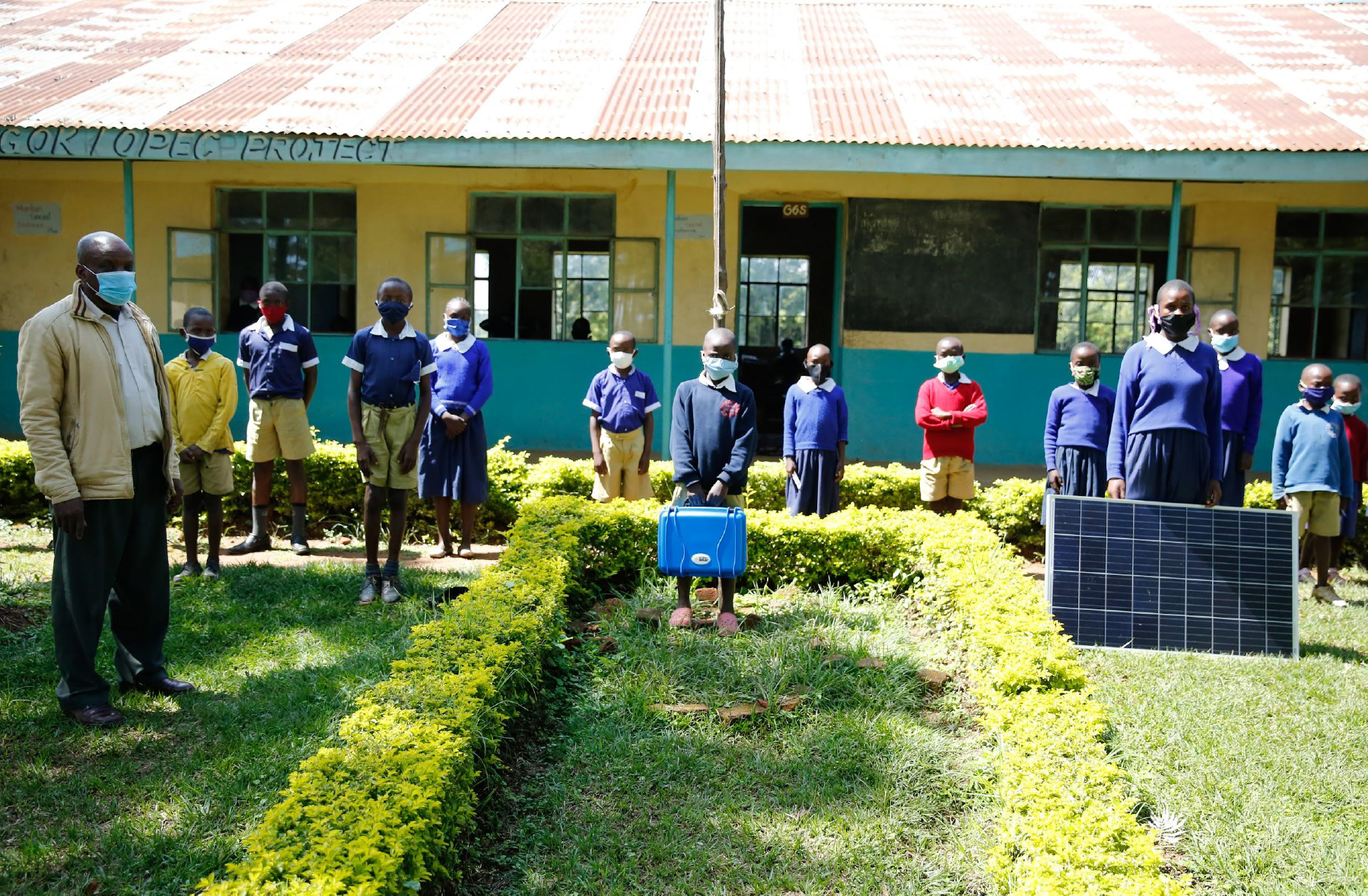Many students don’t get to see the real-world application of what they learn in school until much later in life, but for the high school students in Mission College’s Summer STEM program, their work now has a global impact.
In 2019, the students worked with We Share Solar and Mission College’s HSI-STEM program to learn about electricity and solar power. Eventually, they built solar suitcases, portable devices that could provide power where ever the sun shines. Three of those suitcases have traveled nearly 10,000 miles to schools in Muhuru Bay, Wondanga and Kakuma Refugee Camp in Kenya.
The solar suitcases help students study, prepare for class and power their mobile devices. Before this, the students had to rely on generators and kerosene lanterns for light and power. Just three solar suitcases have had a positive impact on nine classrooms and nearly 1,000 students in Kenya.
“So many schools deserved [this]…you chose us,” said Principal George Owoko Ochieng, the head of one of the schools that received a solar suitcase. “We want to say it’s an honor and a privilege that cannot be taken for granted.”
The students who helped build the suitcases say it’s incredible to see their work in action.
“I think I remember [the day I saw the pictures], I had a bad day. Then, I was told about that picture and I was shown [it] and it made me smile because I was able to help somebody. They’re able to use what I created for them. I just thought that was really amazing,” said Jairo Carias, a senior at Santa Clara High School. “I was just very grateful for what I had too. It also put [things into] meaningful perspective. I have a lot and the fact that someone is struggling this much and they’re really grateful for what was given to them.”
Oak Grove senior Jesus Quiroz says seeing a photo of the solar suitcase installed in a dark classroom reminded him of how lucky he was.
“It just impacts me in a way that I’m lucky to be here and have access to electricity. Right now, I’m charging my computer while I’m here and I don’t have to really worry about a blackout happening. I don’t remember the last time when a blackout happened, that’s not a regular occurrence,” said Quiroz. “Just seeing that, it’s like, wow. I’m helping out people who were born someplace else and have to deal with circumstances that were out of their control. I think no kid should have to study in the dark without access to reliable things. In a world where electricity, computers, technology, they are a must now, they’re not a luxury anymore.”












0 comments